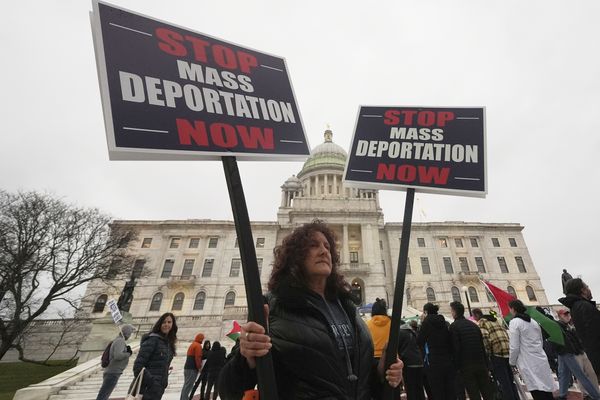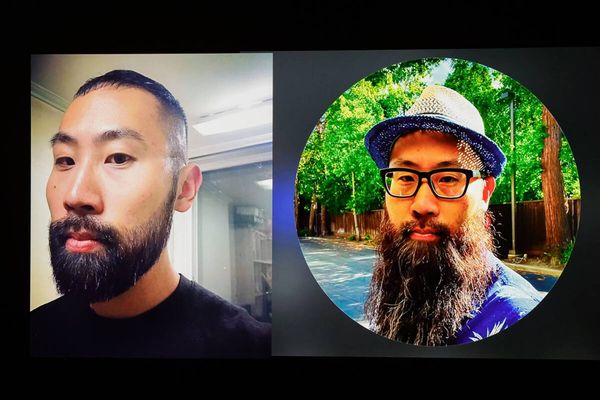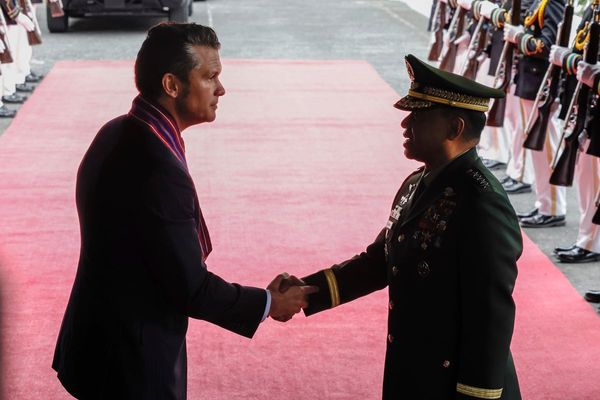
During the week when we mark 75 years of the Universal Declaration of Human Rights and the 1948 convention on the prevention and punishment of genocide, I have been thinking about the genesis of both events and how we should commemorate them now.
Adopted within 24 hours of each other in Paris in December 1948, the universal declaration seeks to protect individuals, while the convention seeks to protect groups. That moment in Paris was revolutionary: a recognition that the rights of the state are not unlimited, that the days of being allowed as a matter of law to trample over human lives were over.
How does it feel? I go back to that period around 1945, to the publication of two books, by two men whose origins and ideas may be traced to the remarkable city of Lviv, and to the law faculty of its university. One was Axis Rule in Occupied Europe by Rafael Lemkin, published in November 1944, in which he coined the word “genocide”. The other is An International Bill of the Rights of Man by Hersch Lauterpacht, published a few months later, in which he set out the ideas that would inform the development of human rights and “crimes against humanity”.
Both men were part of the prosecution teams at Nuremberg. They prosecuted Hans Frank, who once served as Adolf Hitler’s lawyer, unaware that he was involved in the murder of their entire families. This they only learned at the end of the trial. It would be understandable if both men had curled up in a corner and wept, about the state of the world, about the loss of their families. They didn’t. They developed ideas, then they pushed those ideas. How would they feel today, 75 years on?
How would they feel about the rights of the writer Victoria Amelina, my friend, and all the other civilians killed in Ukraine? How would they feel about the rights of the Chagossians, forcibly deported from their homes 50 years ago, and still not able to return? How would they feel about a British government that seeks to limit the effect of the European convention on human rights – drafted with significant input from the UK – to allow the country to send people to Rwanda, a place that the supreme court has determined not to be safe? How would they feel about the terrible deaths that occurred in southern Israel on 7 October? How would they feel about the terrible deaths that have followed in Gaza? How would they feel about the mass incarceration of the Uyghurs? How would they feel about the policy of torture embraced after September 11?
We can speculate, but we cannot know. But I know how I feel, on this anniversary, inspired by their ideas and endeavours and those of countless others. I would say: this is not a moment of celebration, but of recognition, of how much remains to be done, and also of what is different today and what we have.

Four years ago, I was on a panel at George Washington University with Thomas Buergenthal, a former judge at the international court of justice. Many decades earlier, as a 10-year-old boy, he was in the care of a medical doctor named Josef Mengele, at a place called Auschwitz. The panel we shared was a week before the hearings in The Hague in the case brought by the Gambia against Myanmar, an application for provisional measures to stop the genocide of the Rohingya. “Can you imagine,” said Tom, “if in 1944 there had been a treaty which said you could not treat people as I and others were treated, and a court of judges to which countries could go, and a faraway country that would actually be willing to go to that court and ask the judges to order that such behaviour must stop?”
At the hearing in The Hague a week later, I found myself sitting alongside Aung San Suu Kyi, who appeared as agent for Myanmar. I did not find myself in agreement with much she said that day, but one sentence she spoke has remained with me: “International law may well be our only global value system.”
And so it was. The 17 judges acted unanimously to adopt a far-reaching provisional measures order, with unprecedented reporting requirements. In Cox’s Bazar, in Bangladesh, hundreds of Rohingya refugees stood and held up placards, on which three words were written: “Thank you Gambia.”
So, 75 years on, how should we mark the anniversaries of the universal declaration and the convention? We may not have enough, but we have more than nothing, and that allows hope and a block on which to build.
Four things come to mind in these dismal times, in this lawless world in which we must recognise the limits of what has been achieved.
One: protect what we have, what was achieved in that remarkable moment in 1948, for it – and the ideals of the rule of law – are under grievous threat right now.
Two: build on accountability for all. Support the international law commission convention on crimes against humanity. Support accountability for all international crimes, including the crime of aggression. Support an international criminal court (ICC) that holds everyone to account, not just the weakest or those who happen to be from Africa.
Three: move beyond the rights of the human and embrace the rights of nature. On climate, the scientists tell us that what is coming fast will be catastrophic, that the failure of Cop28 to commit to phasing out fossil fuels will be inadequate. Perhaps the environment will be fine, but we humans will not be. Think about rights in relation to the climate crisis. Think about ecocide, to be added to the ICC statute as the fifth international crime.
Four: act on the continuing effects of historic wrongdoing, not least enslavement and colonialism – which Emmanuel Macron characterised as a “crime against humanity” – and historic emissions of greenhouse gases. You may not like it, but reparation, or something akin to it, is on the table and it’s here to stay.
Philippe Sands is professor of law at University College London and author of East West Street: On the Origins of Genocide and Crimes against Humanity
Do you have an opinion on the issues raised in this article? If you would like to submit a response of up to 300 words by email to be considered for publication in our letters section, please click here.







